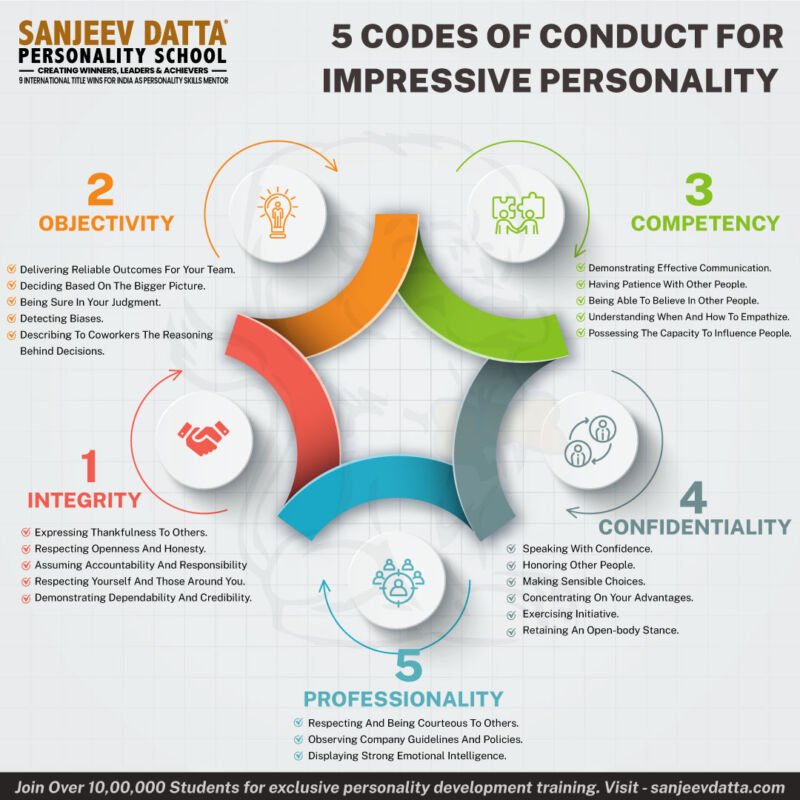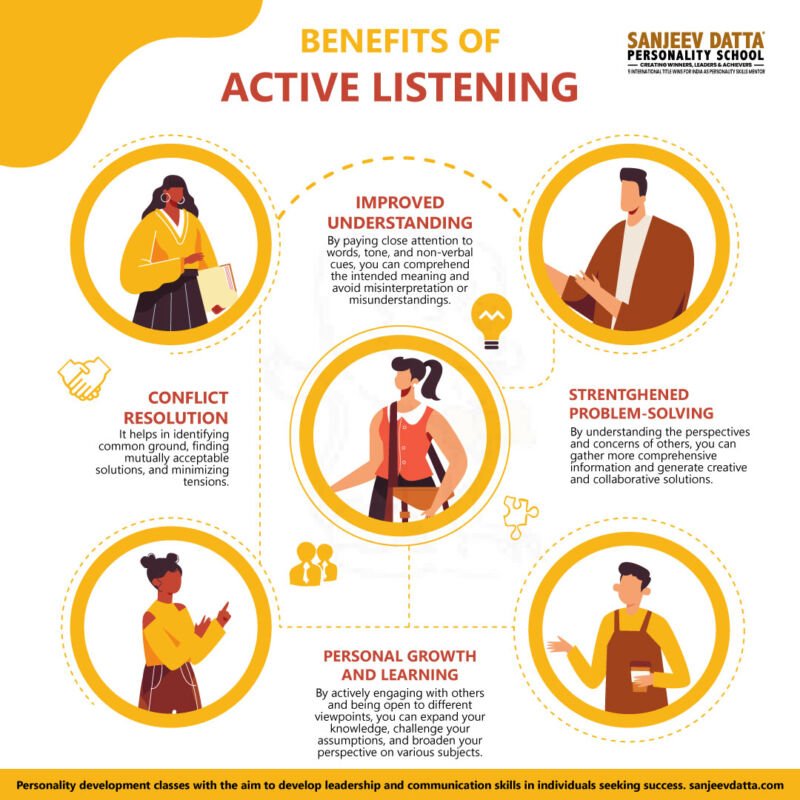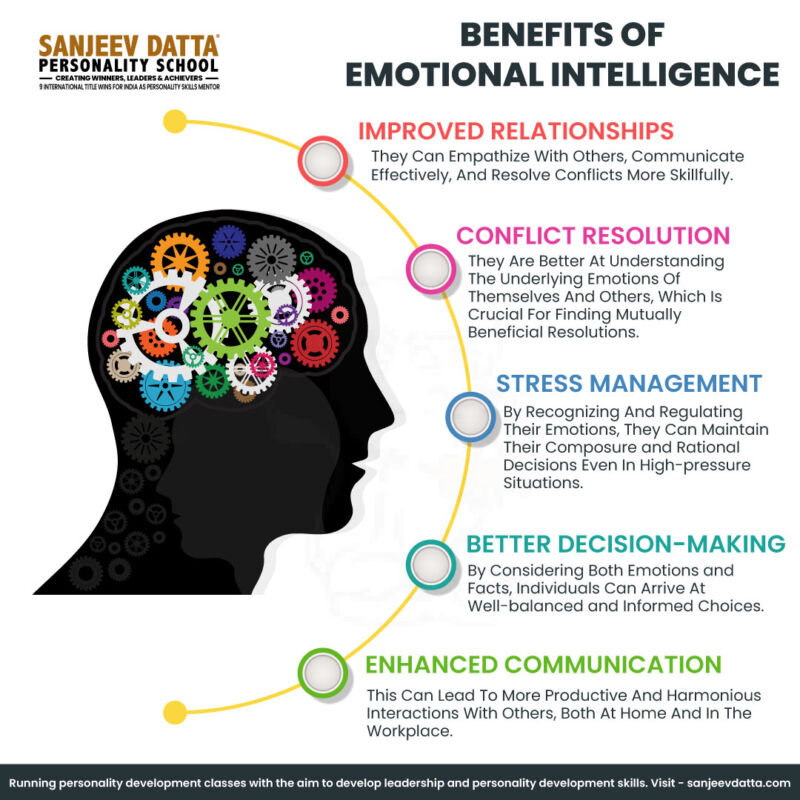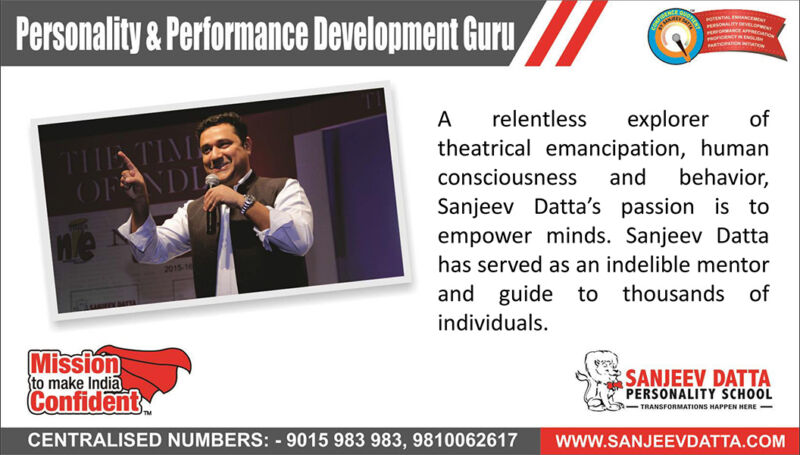Here’s something most people get completely wrong—they think personality development and character building are basically the same thing with different names. They’re not. And confusing the two could be why your self-improvement efforts feel superficial or why you’re crushing it socially but feeling hollow inside. Personality development vs. character building represents one of the most misunderstood distinctions in personal growth.
While both are essential for becoming your best self, they address fundamentally different aspects of who you are. Personality development shapes how you interact with the world—your communication, presence, and social adaptability. Character building delves into the core of your moral and ethical beliefs—the foundation that guides your actions even when no one is watching.
The professionals who truly excel aren’t just skilled communicators with magnetic personalities. They’re also people of substance—individuals whose character makes them reliable, trustworthy, and consistently ethical. Understanding the difference between these two forms of development isn’t just academic—it’s the key to building both professional success and personal fulfillment.
Understanding Personality Development
What Does “Personality” Actually Mean?
Personality is that pattern of characteristic thoughts, feelings, and behaviors that distinguishes one person from another and that persists over time. It’s essentially your outward expression—how you show up in the world and interact with others.
Core Components of Personality:
- Communication Style: How you articulate thoughts and express yourself
- Social Adaptability: Your comfort level in different environments
- Emotional Expression: How you manage and display emotions
- Physical Presence: Your body language, grooming, and overall presentation
- Temperament: Your natural disposition and typical emotional responses
Why Personality Matters:
Your personality is often the first thing people notice about you. It’s what creates first impressions, opens doors to opportunities, makes you memorable in professional settings, and facilitates relationship building. In many ways, your personality is your social currency—it determines how easily you navigate interpersonal situations.
The Focus of Personality Development
Personality development revolves around enhancing the outward expression of who you are. It’s about refining behaviors, temperaments, and social interactions to become more effective in how you present yourself and connect with others.
Key Areas of Personality Development:
- Communication Skills: Learning to articulate thoughts clearly and confidently in both written and verbal contexts
- Interpersonal Effectiveness: Becoming comfortable in various social and professional environments
- Emotional Intelligence: Managing emotions to foster positive relationships and navigate complex social dynamics
- Professional Presence: Developing appearance, body language, and demeanor that command respect
- Networking Capabilities: Building and maintaining valuable professional and personal connections
Personality Development is Situational
One important characteristic of personality development is that it’s often context-specific. You might present yourself one way in a job interview, another way at a social gathering, and yet another way with close friends.
Examples in Action:
- How do you introduce yourself at networking events
- The impression you make during job interviews
- Your ability to command attention during presentations
- How you navigate difficult conversations
- Your comfort level in unfamiliar social situations
This situational nature doesn’t mean you’re being fake—it means you’re adapting your presentation to different contexts while remaining fundamentally yourself.

Understanding Character Building
What Character Really Represents?
Character building delves into the core of your moral and ethical beliefs. It’s about strengthening the foundation of who you are—the part that guides your actions even when no one is watching.
Core Components of Character:
- Values and Principles: Honesty, integrity, empathy, courage, and other moral cornerstones
- Ethical Decision-Making: Making choices aligned with your core values, even when it’s difficult
- Accountability: Taking ownership of your actions and learning from mistakes
- Resilience: Cultivating inner strength to persevere through adversity
- Consistency: Aligning your actions with your stated beliefs across all situations
Why Character Matters:
While personality may open doors, character determines whether you stay in the room. Character is what people discover about you over time, what builds trust in relationships, and what guides you through ethical dilemmas. It’s the substance beneath the surface.
The Focus of Character Building
Character sits at the center of personal growth, focusing on developing traits like resilience, empathy, and authenticity that enhance your overall life fulfillment.
Key Areas of Character Building:
- Moral Development: Strengthening your ethical framework and value system
- Integrity: Ensuring your actions match your words consistently
- Empathy and Compassion: Developing genuine concern for others’ well-being
- Responsibility: Taking ownership of your choices and their consequences
- Courage: Acting according to your values even when it’s uncomfortable or costly
Character Building is Internal and Consistent
Unlike personality development, which can be somewhat situational, character is meant to be consistent regardless of context. Your character defines who you are when no external rewards or punishments are present.
Examples in Action:
- Returning extra change when a cashier makes a mistake in your favor
- Giving credit to team members rather than taking it yourself
- Admitting mistakes even when you could probably get away with hiding them
- Keeping commitments even when they become inconvenient
- Standing up for what’s right even when it costs you socially or professionally
This consistency is what makes a character trustworthy—people can rely on you to act according to your values regardless of circumstances.
The Key Differences Explained
1. Surface vs. Depth
The most fundamental difference lies in what each addresses. Personality is the outward layer designed to interact with the world, while character is your inner core that defines your moral compass.
Personality Development:
- Focuses on external presentation and social effectiveness
- About how you appear to others
- Skills that can be learned relatively quickly
- Results visible in social and professional interactions
- Improves how people perceive you initially
Character Building:
- Focuses on internal values and moral framework
- About who you truly are
- Qualities developed through consistent practice over time
- Results visible through long-term behavior patterns
- Determines how people perceive you after knowing you well
2. Adaptability vs. Consistency
Another key distinction is how each operates across different situations.
Personality:
Appropriately adaptable based on context. You might be more formal in business meetings and more casual with friends. This adaptability is actually a sign of developed social intelligence.
Character:
Meant to be consistent regardless of context. Your honesty shouldn’t change based on who’s in the room. Your integrity remains constant whether you’re with your boss or your family.
3. Skills vs. Values
Personality development primarily involves skill acquisition, while character building focuses on value internalization.
Personality Development Skills:
- Public speaking and presentation
- Active listening techniques
- Body language awareness
- Conversational skills
- Professional appearance standards
- Time management and organization
- Conflict resolution approaches
Character Building Values:
- Honesty and truthfulness
- Integrity and consistency
- Compassion and empathy
- Courage and conviction
- Humility and self-awareness
- Justice and fairness
- Responsibility and accountability

Why Both Matter: The Complementary Nature?
Personality Without Character: The Hollow Success
Imagine someone with incredible communication skills, magnetic presence, and effortless social grace—but who lies, manipulates, and acts without integrity. This person might succeed initially, but their lack of character will eventually catch up with them.
The Problems:
- Short-term success that doesn’t last
- Relationships that feel superficial
- Reputation that eventually crumbles
- Internal emptiness despite external success
- Inability to build genuine trust
Personality without character makes you charming but unreliable, impressive but untrustworthy, and successful but ultimately hollow.
Character Without Personality: The Hidden Gem
Now imagine someone with unshakeable integrity, deep empathy, and strong moral conviction – but who struggles to communicate effectively, appears awkward in social settings, or fails to make strong first impressions.
The Problems:
- Valuable contributions that go unnoticed
- Difficulty advancing professionally despite competence
- Challenges building professional networks
- Ideas that don’t get heard or implemented
- Opportunities missed due to poor presentation
Character without personality makes you reliable but invisible, trustworthy but overlooked, and substantial but unable to effectively share that substance with others.
personality development for career change
The Power of Integration
Personality development and character building are not competing forces but complementary aspects of personal growth. Personality makes you relatable; character makes you reliable. Together, they create a well-rounded individual who thrives both socially and ethically.
The Integrated Professional:
- Commands attention AND earns respect
- Makes strong first impressions AND builds lasting relationships
- Communicates effectively AND speaks with authentic conviction
- Networks strategically AND maintains genuine connections
- Presents confidently AND acts with integrity
- Succeeds publicly AND maintains private virtue
For professionals seeking comprehensive transformation that addresses both dimensions of growth simultaneously, enrolling in a holistic personality development course that integrates external skill-building (communication, presence, social effectiveness) with internal value formation (ethical decision-making, emotional intelligence, authentic leadership) ensures you develop the complete package—becoming both effective in how you interact with the world and grounded in who you are at your core.

Practical Application: Developing Both
1. Assessing Where You Stand
Before you can develop either personality or character effectively, you need honest self-assessment about your current state.
Personality Assessment Questions:
- How comfortable am I in professional networking situations?
- Do I communicate my ideas clearly and persuasively?
- How do others typically describe my first impression?
- Am I adapting appropriately to different social contexts?
- What social or communication skills do I struggle with?
Character Assessment Questions:
- Do my actions consistently align with my stated values?
- Have I compromised my principles for convenience or advancement?
- How do I behave when I’m certain no one will find out?
- Do I take responsibility when things go wrong?
- What would people who know me well say about my integrity?
2. Personality Development Strategies
Communication Enhancement:
- Join Toastmasters or similar speaking groups
- Practice active listening in conversations
- Record yourself presenting and analyze improvement areas
- Seek feedback on communication style
- Study effective communicators in your field
Social Skill Building:
- Deliberately attend networking events
- Practice small talk and conversation skills
- Observe and model socially adept individuals
- Step outside your comfort zone regularly
- Learn to read social cues and body language
Professional Presence:
- Invest in an appropriate professional wardrobe
- Study and practice confident body language
- Develop personal grooming standards
- Work with image consultants if needed
- Create a consistent personal brand across platforms

3. Character Building Strategies
Value Clarification:
- Identify your non-negotiable principles
- Write your personal code of conduct
- Examine where your actions don’t match your values
- Seek feedback on your consistency from trusted sources
- Regular self-reflection on ethical choices
Integrity Development:
- Make small commitments and keep them consistently
- Practice honesty even in uncomfortable situations
- Take responsibility for mistakes immediately
- Align your public and private behavior
- Act on your values even when it costs something
Empathy Cultivation:
- Practice perspective-taking deliberately
- Volunteer with people different from you
- Listen to understand rather than respond
- Study others’ circumstances before judging
- Develop genuine curiosity about others’ experiences
components of personal excellence
The Role of Personality Development Skills in Professional Success
1. Communication as Foundation
Among all personality development skills, communication stands out as perhaps the most critical for professional advancement. Your ability to articulate ideas, listen effectively, and adapt your communication style to different audiences directly impacts virtually every professional interaction.
Why Communication Matters Most:
- Ideas are worthless if you can’t communicate them
- Leadership requires inspiring and directing through words
- Relationships depend on clear, empathetic communication
- Conflicts are resolved (or escalated) through communication
- Opportunities often come through networking and relationship-building
Advanced Communication Skills:
- Storytelling for persuasion and connection
- Tailoring messages to different audience types
- Managing difficult conversations productively
- Written communication that commands attention
- Non-verbal communication awareness
2. Emotional Intelligence: The Bridge Between Personality and Character
Emotional intelligence represents a fascinating intersection between personality development and character building. It involves both outward social skills (personality) and internal self-awareness and regulation (character).
Components of Emotional Intelligence:
- Self-Awareness: Understanding your emotions, triggers, and patterns
- Self-Regulation: Managing emotional responses appropriately
- Social Awareness: Reading others’ emotions and needs
- Relationship Management: Building and maintaining productive connections
- Empathy: Genuinely understanding others’ perspectives and feelings
Developing advanced personality development skills through structured programs that address not just surface-level presentation but also deep-seated patterns of emotional response, social interaction, and authentic self-expression creates lasting transformation that goes beyond temporary behavior modification to fundamental shifts in how you show up professionally and personally.

Professional Presence Beyond Appearance
While appearance matters, true professional presence involves something deeper—the ability to command respect and attention through your entire demeanor.
Elements of Strong Professional Presence:
- Confidence that isn’t arrogance
- Composure under pressure
- Decisiveness balanced with openness
- Authority combined with approachability
- Energy that’s engaging but not overwhelming
Character in Professional Contexts
1. Ethics in the Workplace
Your character is tested constantly in professional environments where ethical compromises often offer short-term advantages.
Common Ethical Challenges:
- Taking credit for others’ work
- Hiding mistakes rather than acknowledging them
- Compromising quality for speed or profit
- Treating people differently based on their power or status
- Choosing expediency over principle
Character in Action:
- Giving credit generously to team members
- Admitting mistakes quickly and learning from them
- Maintaining quality standards even under pressure
- Treating everyone with consistent respect
- Making principled choices even when costly
2. Building Trust Through Consistency
The pursuit of personal development includes character development, and character development is essential for building the professional trust that enables leadership, collaboration, and long-term career success.
How Character Builds Trust:
- People can predict how you’ll act in various situations
- You keep commitments even when inconvenient
- Your values are visible in your behavior
- You demonstrate integrity when under pressure
- Your words and actions consistently align
micro learning for professionals
The Development Journey
1. Short-Term vs. Long-Term
Personality skills can be learned relatively quickly through focused practice and training. Character development, however, requires sustained effort over extended periods.
Personality Development Timeline:
- Basic improvements: Weeks to months
- Significant skill development: Months to a year
- Mastery of complex skills: 1-3 years
- Continuous refinement: Ongoing
Character Development Timeline:
- Initial awareness: Weeks to months
- Habit formation: Months to years
- Deep value integration: Years to lifetime
- Authentic transformation: Continuous lifelong process
2. The Role of Challenges
Both personality and character are developed through challenge, but different types of challenges build each.
Personality Development Challenges:
- Public speaking opportunities
- Difficult conversations
- Unfamiliar social situations
- Professional presentations
- Networking events outside comfort zone
Character Development Challenges:
- Ethical dilemmas with real consequences
- Situations testing your stated values
- Opportunities to act selflessly
- Circumstances requiring sacrifice for principle
- Choices between comfort and conviction
Integration Strategies for Holistic Growth
1. The Authenticity Principle
Working on your character ensures that the personality you project aligns with your true self, preventing superficiality and helping build genuine connections.
Authentic Integration:
- Your charm reflects genuine warmth, not manipulation
- Your confidence stems from competence and self-knowledge
- Your communication expresses authentic thoughts and values
- Your professional presence represents your true character
- Your social skills facilitate real connection, not impression management
2. The Consistency Challenge
One practical way to integrate both is by ensuring your personality development serves your character rather than masking its absence.
Questions for Integration:
- Do my communication skills help me express my authentic values?
- Does my professional presence reflect my true character?
- Am I developing social skills to connect genuinely or to manipulate?
- Does my personality development make me more effective at living my values?
- Are my external improvements aligned with internal growth?
Frequently Asked Questions (FAQs)
Q. What is the main difference between personality development and character building?
Personality development focuses on external presentation—communication skills, social adaptability, professional presence, and how you interact with the world. Character building focuses on internal values—honesty, integrity, accountability, and moral principles that guide your actions even when no one is watching. Personality is situational and about appearance; character is consistent and about substance. Both are essential: personality makes you relatable, character makes you reliable.
Q. Can you have good character but poor personality skills?
Absolutely. Someone can be deeply honest, principled, and empathetic (strong character) but struggle with communication, appear socially awkward, or make poor first impressions (underdeveloped personality). This person has substance but difficulty effectively sharing it with others, which can limit professional opportunities despite genuine competence and integrity. The solution is developing personality skills without compromising character.
Q. Which is more important for professional success—personality or character?
This is a false choice—you need both. Personality typically matters more for initial opportunities (getting hired, making connections, gaining visibility). Character matters more for sustained success (being promoted, earning trust, building lasting relationships). Many professionals plateau because they have personality without character (lose trust over time) or character without personality (never get noticed). Integrated development of both creates optimal professional outcomes.
Q. How long does it take to develop personality vs. character?
Personality skills can be learned relatively quickly—basic improvements in weeks to months, significant development in months to a year. Character development takes much longer—initial awareness in weeks to months, habit formation in months to years, deep value integration over years or a lifetime. Personality development is about learning skills; character development is about becoming a different person. Both require ongoing commitment.
Q. Can personality and character conflict with each other?
Yes, and this creates cognitive dissonance and inauthenticity. For example, someone might develop charming communication skills (personality) that they use to manipulate others, conflicting with integrity (character). Or someone might project confidence (personality) while privately acting with cowardice (character). Healthy development ensures your personality expresses your character rather than masking its absence. Alignment creates authentic presence.
Q. Is it possible to change your character or personality as an adult?
Yes, contrary to old beliefs that personality is fixed, more modern studies have found that personality remains flexible throughout life and can change through consistent effort and discipline. Character can definitely be developed at any age through deliberate practice, value clarification, and conscious behavior change. While childhood shapes both, adults can intentionally develop both personality skills and character qualities through committed practice.
Q. How do I know if I’m focusing too much on personality at the expense of character?
Warning signs include feeling hollow despite external success, relationships that feel superficial, internal discomfort with how you’re presenting yourself, using skills to manipulate rather than connect, prioritizing impression management over authenticity, or finding that people trust you less as they know you better. If personality development leaves you feeling fake or if people discover your private behavior doesn’t match your public presentation, you’re neglecting character.
Q. Can taking a personality development course help with character building, too?
It depends on the course design. Comprehensive programs address both dimensions—teaching communication and presence skills (personality) alongside emotional intelligence, ethical decision-making, and value clarification (character). However, many courses focus only on external skills without addressing internal values. Look for programs that integrate both, emphasizing authentic development rather than just impression management. The best development is holistic, addressing the complete person.
Conclusion: Building the Complete You
Understanding personality development vs. character building isn’t just an intellectual exercise—it’s the roadmap to becoming someone who not only succeeds but also finds genuine fulfillment in that success. Personality without character creates hollow victories that don’t satisfy. Character without personality limits your ability to share your gifts with the world. But when you develop both intentionally, you become truly formidable.
The professionals who make a lasting impact aren’t just skilled communicators or people of deep principle—they’re both simultaneously. They command attention because of their presence and earn respect because of their substance. They make strong first impressions and build lasting relationships. They succeed publicly and maintain private integrity.
Start where you are. If your personality skills are weak, commit to developing them through practice, training, and feedback. If your character needs strengthening, begin with small acts of integrity and gradually increase the difficulty. Most importantly, ensure your personality development serves your character rather than masking its absence.
The world needs professionals who are both effective and ethical, charming and trustworthy, and successful and substantial. Your journey toward becoming that person starts with understanding the difference between personality and character—and then intentionally developing both.
You don’t have to choose between being impressive and being good. You can be both. You should be both.


